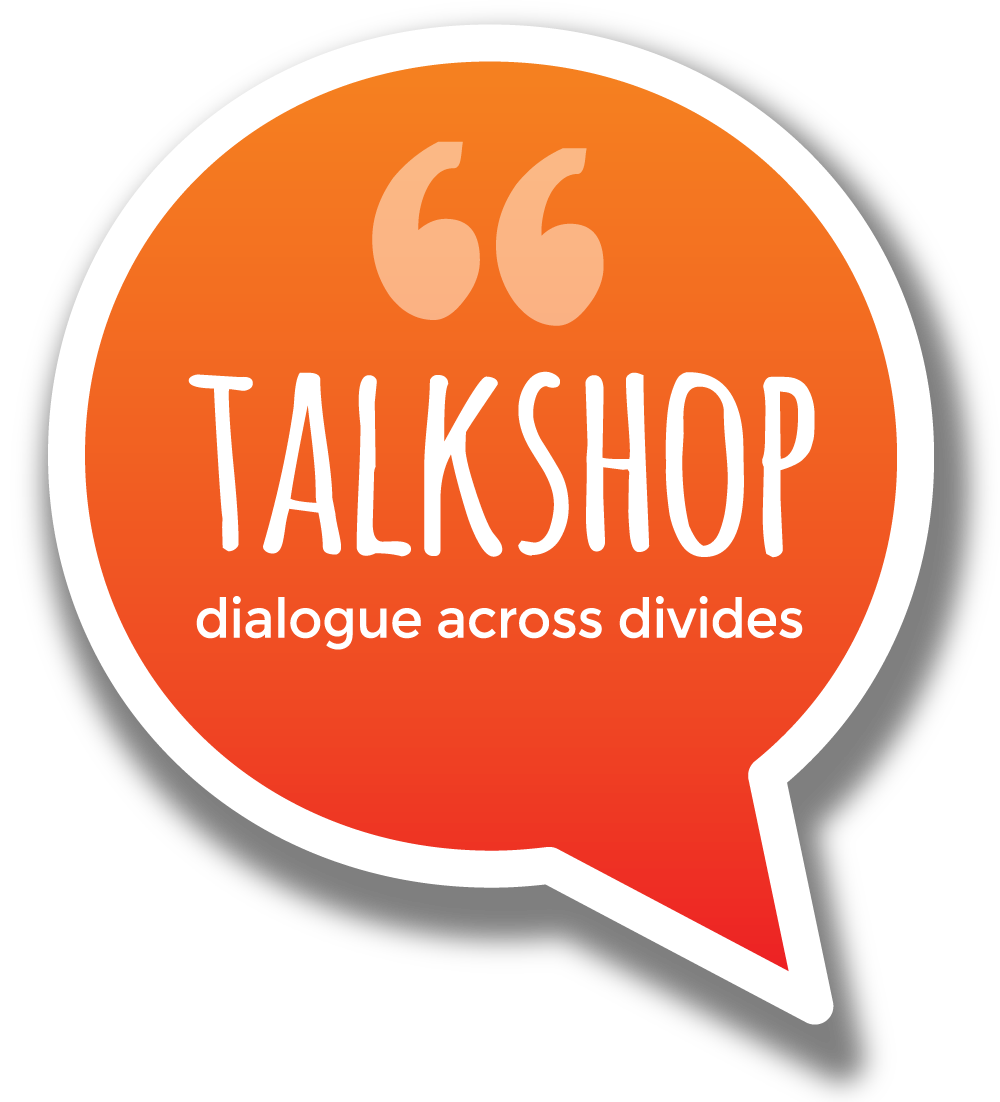If you can find a room, publicise the event and get the people there – we’ll provide everything else. We can also provide a facilitator, or train you to do that.
Our aim is to make it as simple as possible for you and a few friends to put on a Talk Shop event. And we hope you’ll feel your efforts have been so worthwhile that you’ll want to turn this into a regular event.
What follows is how Talk Shop generally works, but there are many variables. So if you’d like to do it differently do get in touch with us anyway through our contacts page.
Key things you need to know
- you need to start planning 8-9 weeks before the event – busy people often need to get a date in the calendar at least a month ahead so they can, for example, schedule child care
- Talk Shop works best with between 20 & 50 people, and lasting at least 2 hours
- you’ll need a room that has tables that can each accommodate 5-7 people
- if there’s three of you working on it, you should expect to put in no more than a couple of hours each week
- having access to at least one email network, and preferably several, should bring in sufficient people
- we don’t charge you for anything – however if you want one of our facilitators we ask you to follow the Event Planning Guide, and pay for our travel
Here’s what we will provide
- a detailed Event Planning Guide for the 8-9 weeks before the event
- support & advice by email and phone over that period
- sample layouts for your publicity – see here for examples
- an Event Kit – this includes a set of information cards, facilitators’ plan and feedback forms – you can see more about the kits in the Current Topics area.
And here is the training video we made for the Driverless Cars topic. Most other topics follow a similar pattern.
If you know an experienced facilitator they will be able to conduct the event using the facilitators plan and support from us – they don’t need to be an expert on the topic. Alternatively, one of our team can visit and do this for you. It’s also helpful to briefly train a facilitator for each table.
Key things for you to decide
- the venue and how you will pay for it
- what other groups with email lists or social media presence might promote the meeting – we’ve found this really helps to drive up numbers and get a good cross-section of the community
- whether you will use Eventbrite – this helps to convey the image of a professionally organised event, and gauge how many people will turn up
- whether to charge a nominal sum for attendance – this helps ensure that most who’ve registered do actually turn up
- your budget including venue, printing publicity and perhaps facilitator travel
Typically, the event runs like this
- the facilitator introduces the event – how it works and ground rules for discussion
- there are typically 2 or 3 rounds – during each round every table has its own discussion – and at the end someone from each table summarises to the whole group
- Round 1: each table discusses the main issue
- Round 2: people move to a table of their choice – and discuss one of the options for solving
- (optionally) Round 3: people stay where they are – and reach out to tables looking at different options to see how they might be combined
Just imagine how a network of groups doing this all round the country, with yours playing a key part, could change the political dialogue!
So please get in touch through our contacts page. We’re keen to talk!
